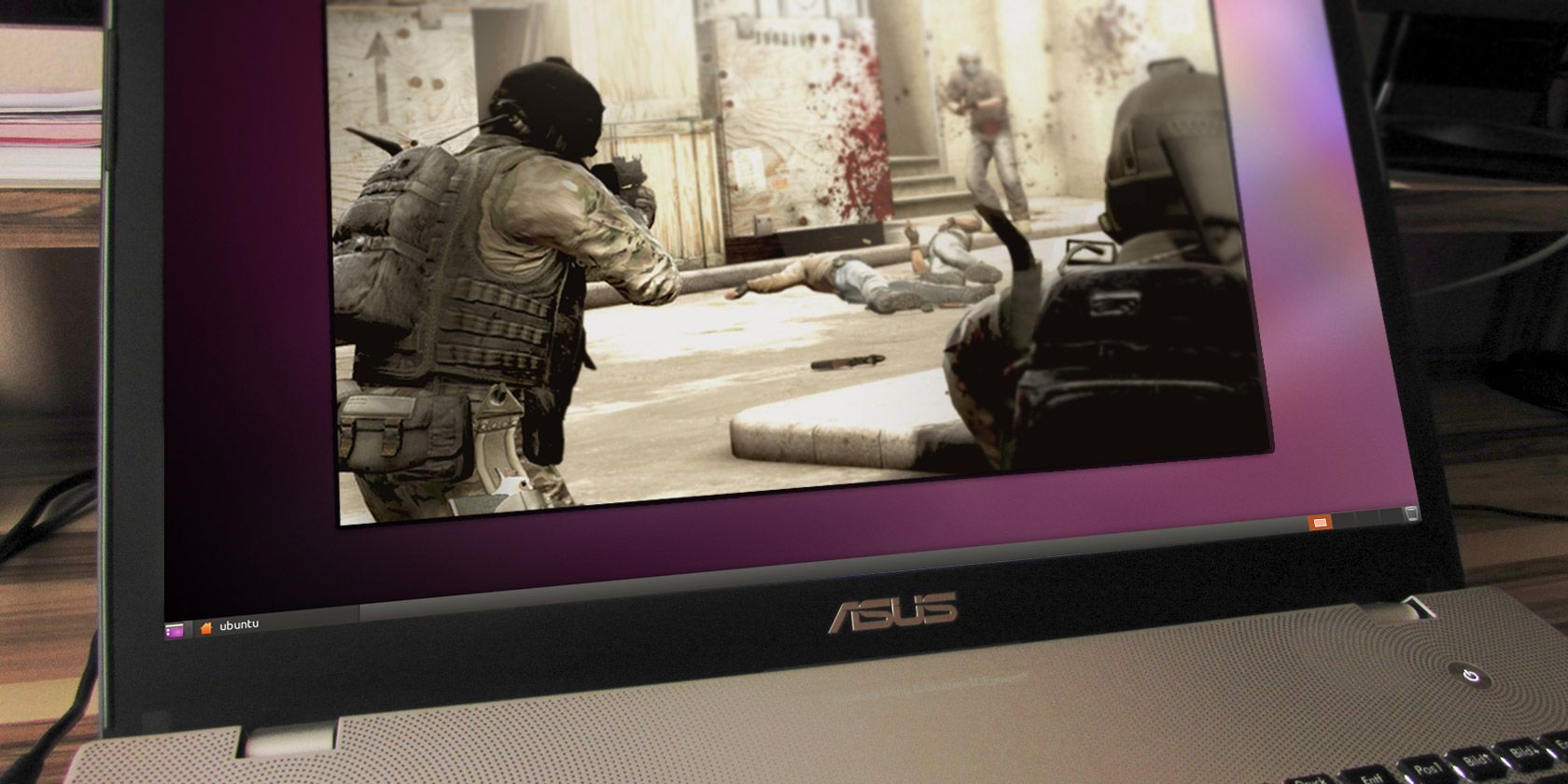It pains me to admit it, but Linux has always struggled to prove its worth as a mainstream computing platform, especially to mainstream computer users. This is especially true when it comes to gaming.
Or, at least it used to be. In the late 90s and early 00s, when the long-feted "Year of the Linux Desktop" seemed imminent, there was a spate of PC games being ported. But when it became abundantly clear that Linux couldn't usurp Windows, the flow of games turned into a trickle, as developers quickly lost interest.
Fifteen years later, things are a little bit different.
Developers, both Triple-A and indie, are flocking back to Linux. The Steam store was ported in 2013, and we're starting to see big-budget games hit Linux at the same time as their Windows counterparts, or not long after.
The reasons for this are threefold. Linux graphics drivers are now actually decent; Valve is hoping to get into the console space with Steam Machines and Debian-based SteamOS; and manufacturers like Dell are starting to produce high-end laptops with Linux pre-installed. In short, it's a great time to be a Linux gamer.
If you're not convinced, you're going to want to read on. Here are five, top-tier games which undeniably demonstrate the potential of Linux as a platform for gaming.
Civilization: Beyond Earth
Just. One. More. Turn.
Civilization: Beyond Earth is the latest addition to the iconic Civilization family. That's not including the recent Rising Tides DLC, available to download on Steam for $39.99. We'll get to that later.
The turn-based strategy game is set in a not-too-distant future, where Earth has been rendered utterly uninhabitable, thanks to an unspecified disaster called "The Great Mistake".
In the moments before Earth is rendered into a Slough-like wasteland, regional alliances take to the stars, all fleeing their one-time home. Eventually, they find a new planet, and they begin to restart their civilization. The problem is, so is everyone else who left earth with you. You're going to have to compete with scarce resources, and contend with a fierce, indigenous alien species.
Along the way, you'll have to develop new technologies to help you survive, and choose the cultural direction your civilization takes.
It's addictive stuff. Although the first game is enough to keep anybody occupied for a long, long time, there was recently a DLC released which expands the game even further. Civilization: Beyond Earth - The Rising Tides was made available on Linux at the same time as its PC and Mac counterparts, and can be bought for $29.99.
Counter-Strike: Global Offensive
Nobody could have predicted how successful the original Counter-Strike would be.
It started life in 1999 as a third-party modification for Half-Life, which replaced headcrabs and alien slaves with kalashnikov-toting terrorists. But eventually, it turned into the gold-standard of team-based, online first person shooters.
Since then, the tried-and-tested formula has been periodically updated, in order to keep with the times. In 2003, it was finally released as a stand-alone game using the Source Engine, called Counter-Strike: Source. There was also a single-player game, and a port for the original Xbox.
And seventeen years later, it has been updated again, and is called Counter-Strike: Global Offensive (or CS:GO, for short). Gameplay wise, very little has changed. But it does have vastly improved graphics, and a raft of new weapons and characters. The real reason to download it is the hours and hours of addictive multiplayer fun.
You can buy it on Steam for $14.99.
SOMA
Soma comes from the same software house that produced the nightmarishly scary FPRPG Amnesia: The Dark Descent (also available for Linux for $19.99 from Steam).
In many respects, the two games have an awful lot in common. Both are dark and suspenseful horror games. Both know how to use music to create suspense and tension. Both know that the best way to induce terror in a player is to make them feel hopeless, and alone. Both are first-person RPGs. But while Amnesia is set in a castle in 1850's Prussia, Soma is a decidedly futuristic affair.
The setting for SOMA is PATHOS-2 - a dilapidated, underwater research facility, located somewhere in the Atlantic. Originally designed to send humans into space before a comet strikes earth, it instead became a prison for earth's remaining survivors, who eke out an isolated existence in their aquatic tomb. As their society has adapted, the computers and machinery that control PATHOS-2 have similarly changed, and have developed consciousness and autonomy.
As Simon Jarrett - the protagonist of SOMA - you have to escape the facility. But don't think that SOMA is like any other first-person RPG. You can't simply shoot your way to the finish line, as you might in the similarly stealth-oriented RPG, Deus Ex: Human Revolution. Like Amnesia, there's hardly any combat. You have to depend on stealth, guile, and your ability to solve puzzles under pressure.
Tempted? SOMA can be bought on Steam for $29.99.
Kerbal Space Program
There's a lot to like about the Kerbal Space Program. For starters, it's a novel and unique idea, that was produced by an independent team of developers based in Mexico City. That alone is enough to get me to like it. But above that, it's just so incredibly charming.
The premise of the game centers around a small, green, Minion-like race of aliens called Kerbals, and their fledgling space program. As the player, it is your job to design and manage the construction of rockets, rovers, probes, satellites and spaceplanes. Your job is to use these to embark upon missions to explore nearby moons, planets and solar systems.
But at the same time, you have to solve problems. Problems like how to build vessels that are less likely to spontaneously combust in the lower-stratosphere, or will run out of fuel after a few minutes.
You'll never get bored with it, either, as Kerbal Space Program has hundreds of user-built modifications.
It's charming, casual fun, and it's available to download on Linux for $39.99.
Europa Universalis 4
Europa Universalis 4 can best be described as "Risk on steroids".
It's very much a strategy game in the same vein as the aforementioned board game, but it has some key differences, which make the game more profound. More engrossing. Deep, even.
Not only do you have to conquer the world - or otherwise assert your dominance over it - but you also have to manage your society's social and cultural development, the foreign relations of your nation, and it's economy. In many respects, it borrows just as much from Age of Empires and Civilization as it does from the classic Hasbro board game, and that's not a bad thing.
The end result here is a complex, well thought-out game, one that'll keep you playing for hours. Europa Universalis 4 is available to download on Steam right now for $39.99.
The Year of The Linux Gaming Desktop Is Upon Us
What's especially interesting about the above games is that they were released on Linux either on, or shortly after they were released for PC and Mac. While Linux might have some way to go in order to convince the masses of its worth as a mainstream desktop OS, it's certainly already convinced a multitude of games developers.
So, over to you. Are you already a die-hard Linux user? If so, tell me, what are you playing? If not, would games on Linux ever convince you to switch, and if so, which ones? Tell me about it in the comments below.


